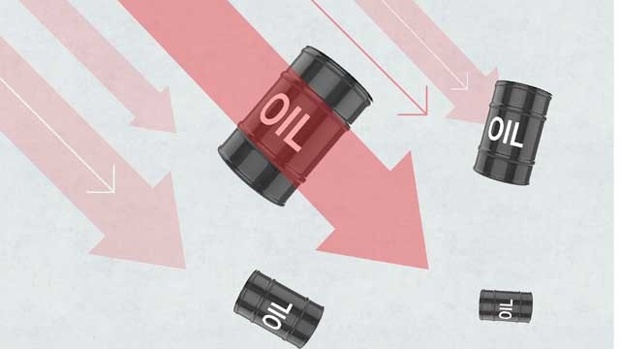
London — Oil fell sharply on Wednesday after slumping in the previous session, weighed down by demand concerns stemming from the state of the global economy and rising COVID cases in China.
Brent futures fell $3.04 to $79.06 a barrel for a 3.7% loss by 1452 GMT. U.S. crude dropped $2.91, or 3.8%, to $74.02.
Both benchmarks plunged more than 4% on Tuesday, with Brent suffering its biggest one-day decline in more than three months.
“Worries about the state of the global economy are front and centre of traders’ minds and will remain so for the foreseeable future,” said PVM Oil analyst Stephen Brennock.
The Chinese government also increased export quotas for refined oil products in the first batch for 2023, signalling expectations of poor domestic demand.
Top oil exporter Saudi Arabia could cut prices for its flagship Arab Light crude grade to Asia in February, having been set at a 10-month low for this month, as concern about oversupply continued to cloud the market.
The head of the International Monetary Fund warned that much of the global economy would face a tough year in 2023 because the main engines of global growth – the United States, Europe and China – were all experiencing weakening activity.
Monetary policy is also in focus, with the U.S. Federal Reserve having raised interest rates by 50 basis points (bps) in December after four consecutive increases of 75 bps each. If the Fed intensifies its rate hikes, that could slow the economy and hamper fuel consumption.
OPEC oil output rose in December, a Reuters survey found on Wednesday, despite an agreement by the wider OPEC+ alliance to cut production targets to support the market.
The Organization of the Petroleum Exporting Countries (OPEC) pumped 29 million barrels per day (bpd) last month, the survey found, up 120,000 bpd from November.
Lending oil some support, the dollar weakened on Wednesday after posting big gains in the previous session. A weaker dollar typically boosts demand for oil because dollar-denominated commodities become cheaper for buyers holding other currencies.
U.S. crude oil stockpiles are likely to have risen by 2.2 million barrels, with distillate inventories expected to have fallen, a preliminary Reuters poll showed on Monday.
Industry group American Petroleum Institute is due to release data on U.S. crude inventories at 4.30 p.m. EDT (2030 GMT) on Wednesday. The Energy Information Administration will release its figures at 10.30 a.m. (1430 GMT) on Thursday.
Bank UBS expects Brent prices to rise to $110 a barrel and WTI to rise to $107 in 2023.
*Ahmad Ghaddar, Muyu Xu; Editing by Louise Heavens & David Goodman – Reuters
Follow us on twitter



